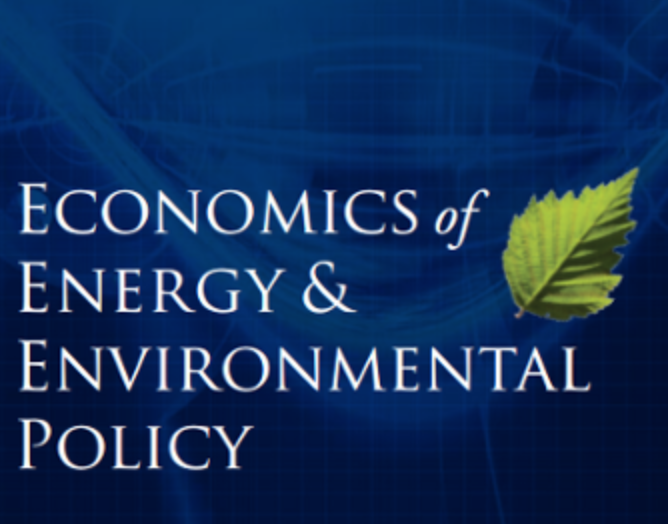
Una proposta per l’accesso universale all’energia nel paesi meno sviluppati: un nuovo tipo d’impresa elettrica e una nuova regolazione
Come “pensare in grande” per l’accesso all’energia: ECoF, l’impresa elettrica del futuro
Conosciamo l’imponente dimensione del problema e sappiamo che spesso l’accesso universale non è realizzato anche quando le statistiche governative dicono che lo è. Sappiamo che ci vuole un flusso d’investimento di 50 miliardi di dollari all’anno, che il progresso è irregolare e diseguale, e che incontra ostacoli. Soprattutto sappiamo che ciò che resta da fare è per gran parte un lavoro diverso da quello che si è fatto finora: è un’incerta mescolanza di estensione delle reti, di mini-reti e di sistemi indipendenti mono-edificio, in contesti ove le responsabilità sono assegnate in modo incerto e le regole sono carenti.
Un gruppo di ricercatori del Massachusetts Institute of Technology diretto da Ignacio Pérez Arriaga ha avanzato la proposta di un nuovo modello d’impresa che potrebbe essere adottato in molti paesi e adattato alle condizioni locali. Sarebbe d’aiuto a coloro che amano pensare in grande e intendono confrontarsi col problema a livello di un intero paese, ma in modo da sostenere e alimentare le iniziative locali. L’hanno chiamato “l’impresa elettrica del futuro” (the Electricity Company of the Future, ECoF).
Il punto di partenza è la considerazione che le imprese attuali di quelle regioni hanno per gran parte mancato il bersaglio. Forniscono un servizio inadeguato. Sono cronicamente in perdita, se non in stato fallimentare, incapaci di funzionare senza ripetuti salvataggi pubblici. Non riescono né a finanziare la crescita né a coinvolgere capitale privato. Hanno fatto crescere nei loro clienti un atteggiamento ostile. Sicuramente non sono in grado di combinare tra loro le tre modalità che oggi dominano le prospettive di elettrificazione e che sono indispensabili per realizzare l’accesso di tutti: le estensioni della rete, le mini-reti e le soluzioni individuali.
Il nuovo modello dell’ECoF nasce da una ricerca delle cause che hanno determinato questo fallimento e da un confronto dei diversi modelli d’impresa che potrebbero in pratica sostituire quello dominante, quasi ovunque rappresentato dall’impresa elettrica di stato. È stato costruito sull’idea di un’impresa di distribuzione, adeguata ai maggiori compiti. Il suo ruolo fondamentale è quello di fornire il servizio elettrico alle aree non ancora servite.
L’ECoF presenta quattro caratteristiche di base.
- L’obbligo di fornire elettricità a tutti i clienti attuali e potenziali del territorio assegnato, attraverso qualsiasi strumento tecnico: la connessione di rete, una mini-rete o un sistema isolato, o anche la ricarica delle batterie. Le soluzioni fuori rete (off-grid) potrebbero essere fornite dalla stessa società o affidate a operatori licenziatari o anche a operatori indipendenti, purché sotto la supervisione dell’agenzia di regolazione e della società di distribuzione.
- Una partecipazione privata sostanziale. In generale questo significherebbe attribuire una partecipazione al capitale e la responsabilità gestionale a una grande impresa energetica privata che abbia un’influenza finanziaria sufficiente sull’impresa della zona (tipicamente pubblica), la competenza tecnica necessaria per gestire la distribuzione dell’ultimo miglio e la capacità di coinvolgere efficacemente i consumatori.
- Il riconoscimento della differenza, particolarmente in un contesto rurale, tra le operazioni di rete e le attività che comprendono l’acquisto dell’elettricità all’ingrosso, la vendita ai consumatori finali, o le altre modalità per metterli in condizione di fruire del servizio. Le operazioni di rete costituiscono un monopolio naturale, quindi soggetto a regolazione. Le altre richiedono di interagire con tutti i consumatori connessi alla rete principale o a una mini-rete controllata dalla società, o anche con quelli che sono o dovrebbero essere serviti da un sistema isolato mono-abitazione. Di queste attività alcune dovrebbero essere soggette a regolazione molto leggera, o addirittura esentate, mentre altre vanno tenute sotto attenta osservazione.
- Orientamento a un approccio più integrato e centrato sul consumatore. La società avrà cura della qualità del servizio, incrementerà la comunicazione e l’interazione con i consumatori, diffonderà conoscenze tecniche e informazione circa le opportunità di finanziamento, farà leva sulla fornitura elettrica per promuovere usi produttivi dell’elettricità.
Struttura ed estensione della società dovranno essere adattate in modo da consentire un’attuazione idonea a ciascun paese.
Questa non è una ricetta per risolvere tutti i problemi, ma è un suggerimento importante che merita attenzione e discussione.
IGNACIO J. PÉREZ-ARRIAGA, ROBERT STONER, ROXANNE RAHNAMA, STEPHEN J. LEE, GRÉGOIRE JACQUOT, ERIC PROTZER, ANDRËS GONZALEZ, REJA AMATYA, MATTHEW BRUSNAHAN, PABLO DUEÑAS, and FRANCISCO J. SANTOS, “A Utility Approach to Accelerate Universal Electricity Access in Less Developed Countries: A Regulatory Proposal” in Economics of Energy & Environmental Policy, vol.8 issue 1
